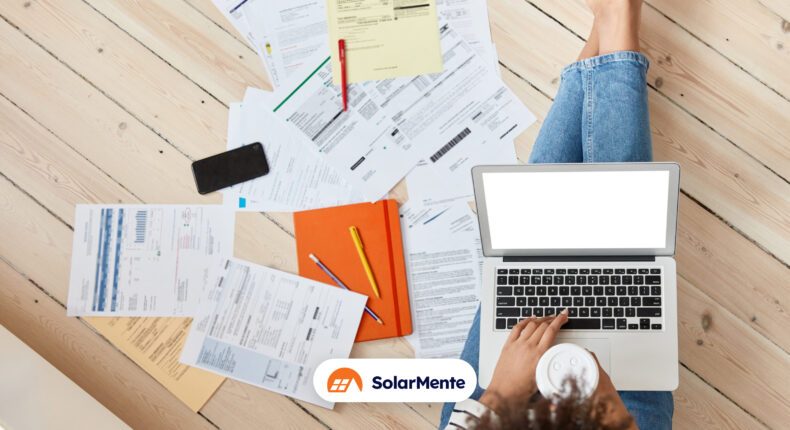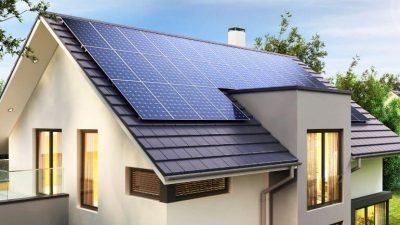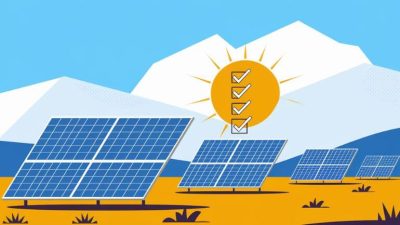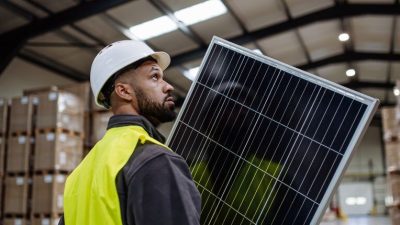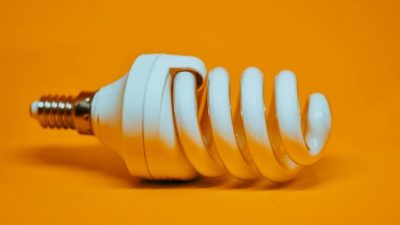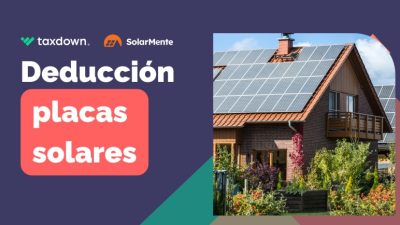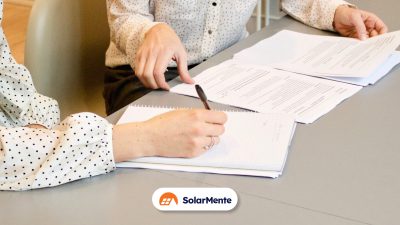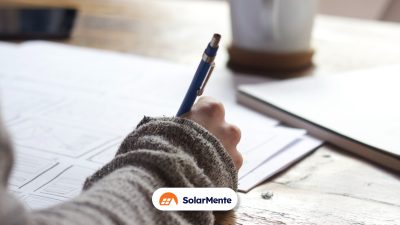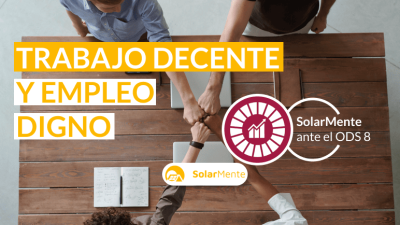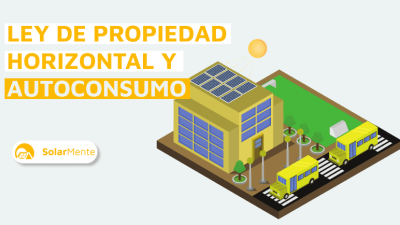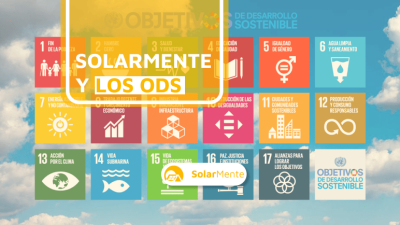The use of solar energy for self-consumption in Spain continues to increase year after year, and more and more households are benefiting from all the advantages of having solar panels installed in their homes, both economically and environmentally.
Having a photovoltaic installation not only saves energy and electricity bills, but the government also offers grants and subsidies to encourage the use of renewable energies.
The deduction in the IRPF for the installation of solar panels is one of the aids about which there are still doubts.
And that is exactly what we are going to do in this article. Today we will show you7 frequently asked questions about the IRPF deduction for installing solar panels.
1. What is the IRPF deduction for the installation of solar panels?
The IRPF deduction is a subsidy that supports the development of the photovoltaic self-consumption sector.
Therefore, if you install solar panels in your home or community of neighbours, you will be entitled to a rebate of between 20% and 60% of the total investment made in order to improve the energy efficiency of your home.
The purpose of this aid is to promote the energy refurbishment of single-family homes and communities in order to reduce the use of fossil fuels by at least 30%.
2. What requirements must be met to qualify for the IRPF deduction for the installation of solar panels?
In order to be eligible for this deduction, the requirements established by the Tax Agency must be met:
-
The applicant must be the owner of the property
-
The installation must be carried out by authorised companies.
In addition, other requirements must be taken into account. The installation work must be carried out after 6 October 2021 and there will be a deadline for aid that will end for homes that install before 31 December 2024.
And that’s not all, once the solar panels have been installed, it will be necessary to demonstrate by means of the Energy Efficiency Certificate if the home has reduced its heating and cooling demand by 7%.
3. Who can benefit from the IRPF deduction for the installation of solar panels?
All individuals who carry out work on their main residence, or any other personal residence, and who contribute to the improvement of energy efficiency.
The IRPF deduction for solar panels in Catalonia (where we currently work), as well as in the rest of the autonomous communities, applies to all types of homes that include self-consumption systems with renewable energy sources.
We are not only talking about single-family homes, but old buildings have a great opportunity to be refurbished to improve their energy efficiency. Moreover, the deductions are higher when compared to single-family homes.
4. Which personal income tax deduction brackets can be applied?
Royal Decree-Law 19/2021 establishes three types of IRPF deduction for energy improvement works, including the installation of solar panels:
➡️ Deduction of 20% of the investment.
If you carry out energy efficiency improvement works in your main residence or in a rented property, you will be able to access a deduction of up to 20% of the IRPF up to a maximum of 5,000 euros per year. In the case of a rented property, this must be carried out before 31 December 2024.
The maximum you can deduct is 5,000 euros per year. To do so, you must prove that you have managed to reduce your heating and cooling demand by at least 7%.
And how do you prove this? By means of the corresponding indicators of the energy efficiency certificate of the home, which must be issued by the competent technician once the work has been completed.
➡️ Deduction of 40% of the investment.
In the same case as above, that is, if you carry out energy improvements in your home or in one that you want to rent, you can increase the IRPF deduction to 40%.
Through the corresponding certification, you must demonstrate that you have managed toreduce at least 30% of non-renewable primary energy consumption.
You will also be able to access this deduction if with the works you have managed to improve the energy rating of the house to obtain an energy class “A” or “B”, on the same scale .
This certificate will be issued by a qualified technician who will evaluate and analyse the specific characteristics of your home’s energy consumption. The rating system goes from A to G, with A corresponding to optimum efficiency and G to the lowest possible efficiency.
The deadlines for carrying out the works are the same as in the previous modality, until 31 December 2023. In the case of rental housing, it must be rented before 31 December 2024. And the maximum base on which the deduction is applied in this modality is 7,500 euros per year.
➡️ Deduction of 60% of the investment.
If you carry out refurbishment work to improve energy efficiency in residential buildings (including parking spaces and storage rooms), the applicable deduction could be up to 60% of what you invest.
To do so, you must prove, through the energy efficiency certificate, a reduction in non-renewable primary energy consumption of at least 30%. Another possibility is to upgrade the energy rating of the building to energy class “A” or “B” on the same rating scale.
The deadline for carrying out the works in this case is extended compared to the previous cases, until 31 December 2024. The deduction will be applied in the tax periods 2021, 2022, 2023 and 2024, in relation to the amounts you have paid in each of them.
The maximum deductible base for this type of deduction is 15,000 euros per year.
5. What expenses can be deducted from personal income tax for the installation of solar panels?
The Royal Decree considers that the deductible expenses are those necessary to carry out the work, including:
✔️ Professional fees
✔️ Technical project drafting costs
✔️ Works management
✔️ Cost of execution of works or installations
✔️ Investment in equipment and materials and other expenses necessary for their development
✔️ Issuance of the corresponding energy efficiency certificates.
At the same time, the regulation contains a series of considerations on issues that will not be eligible for subsidies:
❌ Deductions will not be applied when the work is carried out in the parts of the dwellings affected by an economic activity.
❌ Costs relating to the installation or replacement of equipment using fossil fuels shall not be included.
6. Is the personal income tax deduction for the installation of solar panels compatible with other subsidies?
Yes, the IRPF rebate is compatible with other measures and subsidies. This can be interesting if you want to access, for example, European subsidies for self-consumption and storage.
With a photovoltaic self-consumption installation in Catalonia you can obtain subsidies of up to 50% of IBI and 95% of ICIO.
Combining all of them means reducing the amortisation time and increasing the savings on your bill.
However, you should bear in mind that the amounts received cannot be deducted.
Let’s see how it works with an example.
Imagine that you decide to install solar panels on your home and the cost has been 6,000 euros with a subsidy of 1,200 euros.
The deduction will be applied to the remaining amount, i.e. 4,800 euros.
7. How to apply for the deduction for installing solar panels?
To obtain the IRPF deduction for installing solar panels, it is necessary to apply for it through the tax return on the official website of the Tax Agency.
And don’t forget to have the Energy Efficiency Certificate. This is an essential requirement to receive the aid. What’s more, you need a certificate that is less than two years old before the installation, and another one afterwards.
As you can see, various deductions can be applied to accelerate the return on investment of a photovoltaic installation.
Producing clean energy pays off. If you want to start saving money every month and reduce your carbon footprint, try our self-consumption calculator.
Enter your address and monthly consumption. Then a solar expert will contact you to explain what you need – no more, no less.

